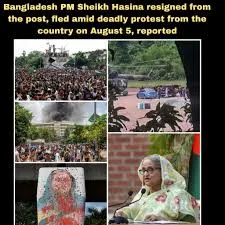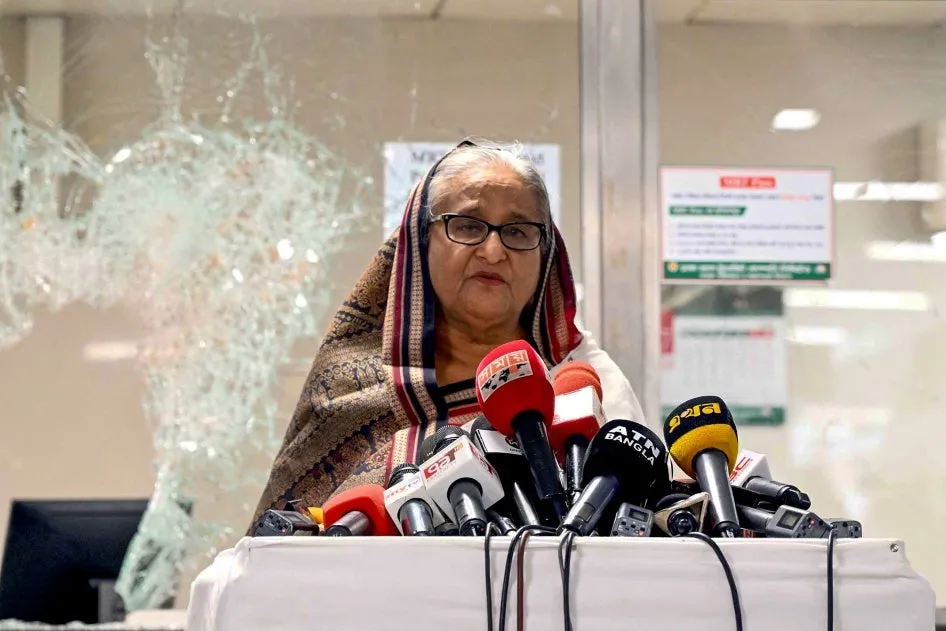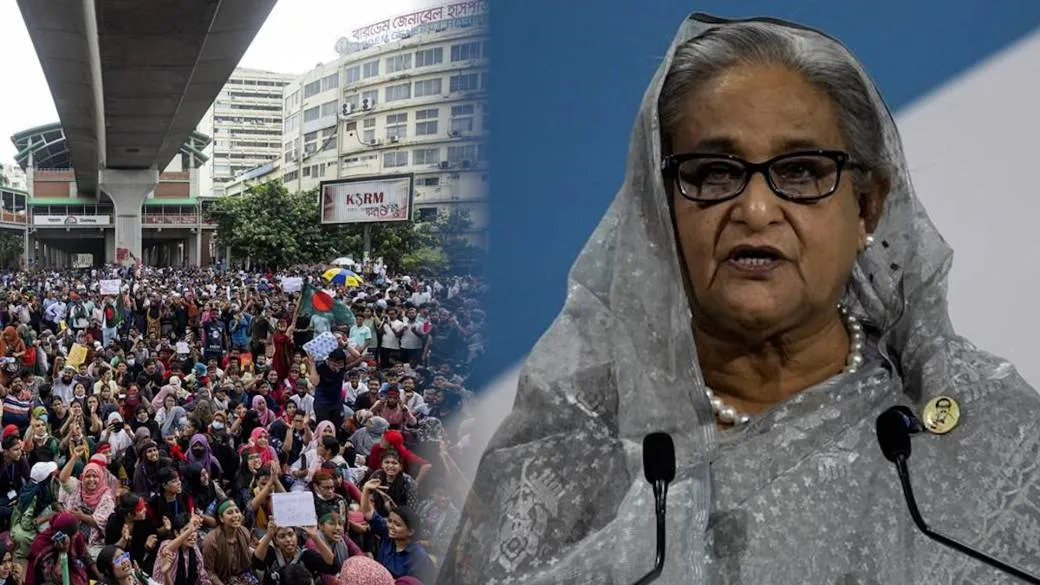Prime Minister Sheikh Hasina Resigns Amid Violent Protests in Bangladesh

Prime Minister Sheikh Hasina Resigns Amid Violent Protests in Bangladesh
In a dramatic turn of events, Bangladesh’s Prime Minister Sheikh Hasina has resigned and departed the country by helicopter following severe anti-government protests that escalated into violent clashes.

The enraged crowd vandalized furniture, smashed windows, and looted books and other items from the Prime Minister’s residence. According to Bangladeshi journalist Yeasir Arafat, more than 1,500 people infiltrated the premises. “The Prime Minister intended to record a speech but did not get the opportunity,” a source revealed.
Despite soldiers and police, supported by armored vehicles, setting up barbed wire barricades to block roads leading to Hasina’s office, the protesters, numbering in the hundreds of thousands, overwhelmed the barriers and spilled into the streets.
In a subsequent televised address, Army Chief Waker-Uz-Zaman announced the Prime Minister’s resignation and urged the public to maintain trust in the military. He mentioned ongoing discussions with opposition parties to form an interim government. “I will take full responsibility,” General Waker stated, though it remains unclear if he will head the interim administration. “The nation has endured enough suffering, economic devastation, and loss of life. It’s time to end the violence.”

Protesters cheer after Prime Minister Hasina resigns
Prior to the breach of the Prime Minister’s Office, Sajeeb Wazed Joy, Sheikh Hasina’s son, had called on security forces to thwart the coup attempt. “The duty of the security forces is to ensure the safety of the people, the country, and to protect the constitution,” Wazed Joy, currently residing in the USA, posted on Facebook. “This means not allowing anyone who hasn’t been elected to seize power, even for a minute. That is your duty.”
Protests erupted in Bangladesh last month over civil service quotas that favored the descendants of veterans. Bangladeshi students and youth took to the streets, deeming the policy unfair. On July 21, the Supreme Court of Bangladesh ruled to amend the recruitment system, reducing the quota for veterans’ descendants from 30% to 5%. However, demonstrations persisted, demanding the Prime Minister’s resignation, despite curfews and violent clashes with security forces.
Protestors and government supporters clashed with knives and clubs nationwide, with security forces resorting to gunfire to control the unrest. On August 4, at least 94 people, including 14 police officers, were killed in the bloodiest day since the protests began. According to AFP, at least 300 people have died over the past month of protests.
Army Chief Waker reiterated over the weekend that the military “stands with the people.” The Bangladeshi military had previously declared a state of emergency in January 2007 amid widespread political turmoil, establishing an army-backed interim government for two years. Sheikh Hasina has led Bangladesh since 2009, securing a fourth consecutive term in the January elections.



